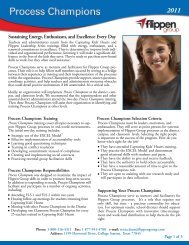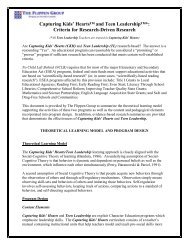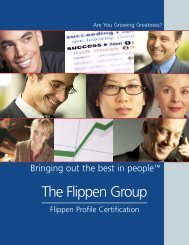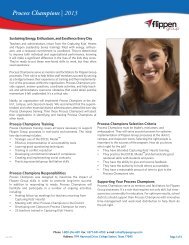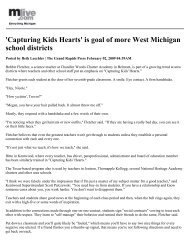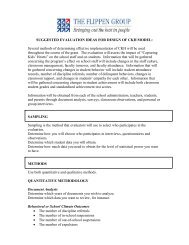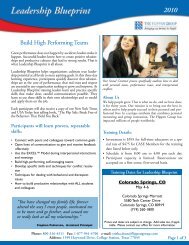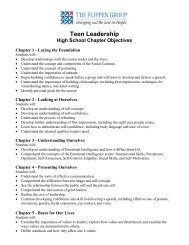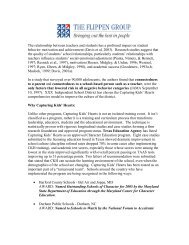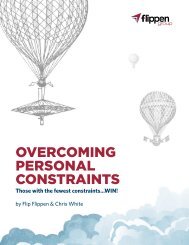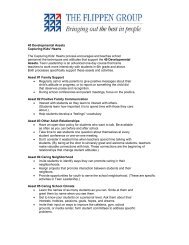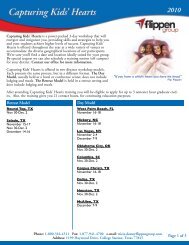Smart & Good High Schools - The Flippen Group
Smart & Good High Schools - The Flippen Group
Smart & Good High Schools - The Flippen Group
- No tags were found...
You also want an ePaper? Increase the reach of your titles
YUMPU automatically turns print PDFs into web optimized ePapers that Google loves.
CHAPTER 5: Fostering the 8 Strengths of Character—Outcome 71. A robust history/social studies curriculum2. A full and honest teaching of the American story3. An unvarnished account of what life has been and islike in non-democratic societies4. A cultivation of the virtues essential to a healthydemocracy. 14impulses of human nature, and to secure freedom of conscience,speech, and assembly; consensual government; therule of law; the right to own property and pursue opportunity;change without chaos or violence; and social justice.This ongoing, worldwide struggle is the best hope of theearth and must be the heart of a reordered curriculum forhistory. 16 <strong>The</strong> template of meaning for studentsTeach a Robust History CurriculumA serious engagement with history, Education for Democracyargues, is essential for the nurturing of the democraticcitizen. What would a robust history curriculum look like?Education for Democracy recommends that over the courseof middle school and high school, a strong history/socialstudies curriculum would devote at least six years to history,geography, civics, and economics, with history as theintegrative core. United States History and World History,segmented by era, would each receive three years. “All thesocial science topics would be taught together around aunifying chronological narrative, so that each subjectenlivens the other.”“We must embed our children’sdemocratic inheritance so deeply intheir souls that no one can take it away.”Why do so many students seem to forget—or never tohave learned—so much of the history they are taught?Education for Democracy says it’s because of how we teachit—“with overstuffed textbooks that lack a compellingnarrative and wear down our students and teachers.” HistorianWilfred McClay reminds us that memory dependson meaning:Memory is most powerful when it is purposeful and selective.It requires a grid, a pattern of organization, a structurewithin which facts arrange themselves and take on significance.We remember those things that fit a template ofmeaning, and point to a larger whole . . . We need to beable to identify those things that every American studentneeds to know, and insist upon them, while paring awayvigorously at the rest. 15<strong>The</strong> “template of meaning” for our students, Education forDemocracy says, must be “the unending drama of the historicalstruggle for democracy.”<strong>The</strong> overarching story, in both modernized and traditionalsocieties, is the struggle to civilize, to curb the worstmust be the story of thestruggle for democracy.For a detailed model curriculum, see Educating Democracy:State Standards to Ensure a Civic Core, prepared by PaulGagnon for the Albert Shanker Institute. 17Tell the Whole Story—Our Achievementsas Well as Our FailuresEducation for Democracy’s second essential is for students tobe given a balanced account of our nation’s achievementsand failures. <strong>The</strong> veteran history teacher Peter Gibbon,author of A Call to Heroism, comments on what he hasfound to be a problematic tendency of recent historytexts to emphasize the negative and neglect the positive:I taught American history for many years and from manybooks. <strong>The</strong>re is much truth in these texts now about incomeinequality, environmental degradation, the horrors of immigration. . . strikes, massacres, and lynchings are vividly described.Contemporary history books cover in detail the Vietnam Warand our shameful treatment of Native Americans. 18By comparison, Gibbon says, “little mention is made ofAmerican genius or heroism.” Why is it damaging toyoung people to concentrate just on the dark side ofAmerican history? Gibbon’s answer: It makes themashamed of their past and pessimistic about the future. Itencourages attitudes of ingratitude and self-righteousness,with every figure in history being viewed as hopelesslyflawed, corrupt, or naive. It does not inspire them tobelieve that they can make a positive difference in theworld. Many “hopelessly flawed people” have done a lotof good in the world. Our people and our governmentare a work in progress.A full and fair account of American history, Education forDemocracy asserts, would also tell students about:the fact that American ingenuity has given the world theelectric light and the telephone, the alkaline battery, nylon,and synthetic rubber, the laser and photographic film, the181<strong>Smart</strong> & <strong>Good</strong> <strong>High</strong> <strong>Schools</strong>



